
TAGTIK NEWS - TO THE POINT
Born on 12 June: Daniel Chenevez, the fall after Niagara?
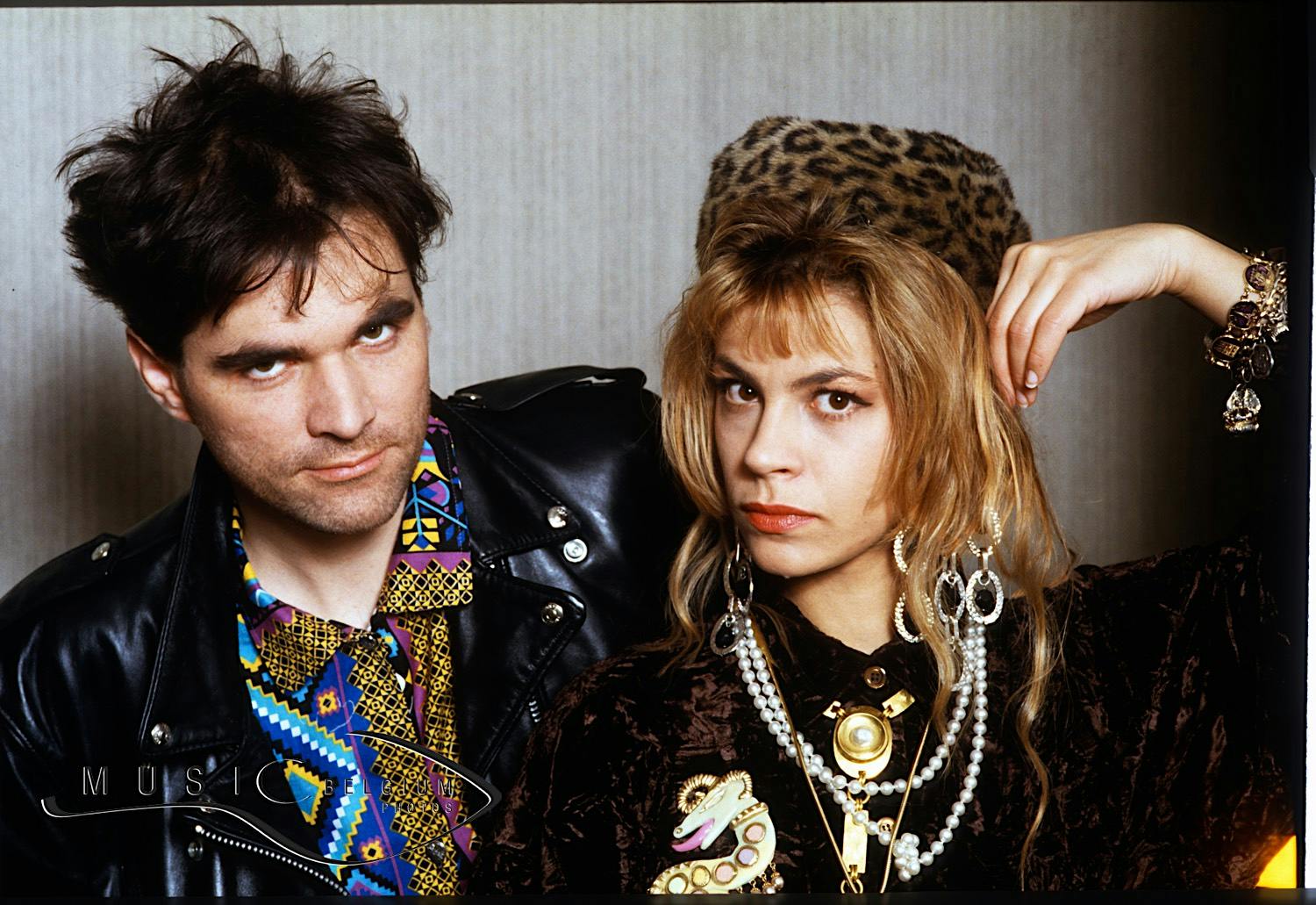
He was born in Nancy in 1959, travelled with his family all over France, and eventually settled in Rennes.
While studying humanities at the University of Rennes, he worked a remarkable variety of odd jobs, mainly to fund his passion for music: activity leader at a holiday centre, pianist in a pizzeria, candyfloss seller, model at the fine arts faculty, and a DJ at a gay club. Quite a range! At the end of the seventies, he had his first experiences in now-forgotten bands such as Opéra Dissidence.
In the early eighties, his meeting with Muriel Moreno would prove decisive for the rest of his career. After the short-lived Les Espions, who released only one single in 1982, they formed L’Ombre Jaune (a reference to the Blake & Mortimer comic) which quickly changed its name to Niagara in 1984.
While Muriel's personality played a key role in the duo's success, it was Daniel Chenevez who took control of the ship. He wrote most of their repertoire, was responsible for arrangements, and even directed the band’s extravagant music videos, which caught the eye of music channel MTV.
At the beginning, they threw themselves wholeheartedly into cheerful, catchy pop. After "Tchiki Boum" and the album "Encore un dernier baiser", things took a serious turn. First, the wild couple broke up, without giving up on their joint career. Then, Daniel gradually took charge of Niagara’s musical direction and creative concepts, surprising the astonished executives at Polydor, their label. Niagara refused to be bossed around by marketing teams and preferred to handle everything themselves. If you want something done well, you’d better do it yourself...
Musically, drawing variously on rhythm and blues (with brass and harmonica on "Aux cœurs blessés" for example) and biting hard rock ("Je suis de retour"), Niagara paid tribute to rock while remaining fundamentally French. A risky gamble, but a successful one for a time.
"What interests me," Daniel confided to me on the release of their final album "La Vérité" in 1992, "is changing working methods for each recording session. It’s a way to avoid the trap of routine. However, you can't fully escape the systematic nature of recordings, TV shows, concerts, interviews, music videos... There’s no other way to do this job these days".
"Since our first album in ’86," he explained further, "journalists have noted changes of direction. Personally, I prefer to talk about evolution or even progression. Some people were probably expecting us to go techno or Irish folk, but that was obviously out of the question! It’s true, though, that most people I meet highlight similarities between our last two records. In my eyes, it isn’t so. We even chose to feature instruments unusual for us, such as the flute ("Un million d'années") or bagpipes ("Le prochain payera pour les autres"). What's more, Muriel and I each took full responsibility for part of the songs, both lyrics and music, before offering them to the other so we could rework them together."
After Niagara’s fall, Daniel chose to continue his musical explorations discreetly. In 1997, he recorded a few tracks with a techno-rock flavour. He lent his production skills notably to Helena Nogueira, Lio’s sister. In 2004, he worked with former model Karen Mulder on her first (and only) album. In 2010, he performed the song "Je veux être toi" for the film soundtrack of "Nous trois." Finally, in 2014, he recorded "Erotisme, Cantique 25.7," a mini-album of six tracks produced by Dominique Blanc-Francard. His love of sophisticated orchestrations, ever-present violins (those from Macedonian Radio), and obvious cinematic references (notably to spaghetti westerns) combined to create an artistic success that, alas, never found its audience, as the saying goes.
For the past ten years, Daniel Chenevez has disappeared from the public eye, now preferring anonymity to limelight.
(MH with Stéphane Massart – Photo: © Etienne Tordoir)
Photo: Daniel Chenevez (left) and Muriel Moreno from Niagara in Liège (Belgium) in January 1987
LATEST NEWS
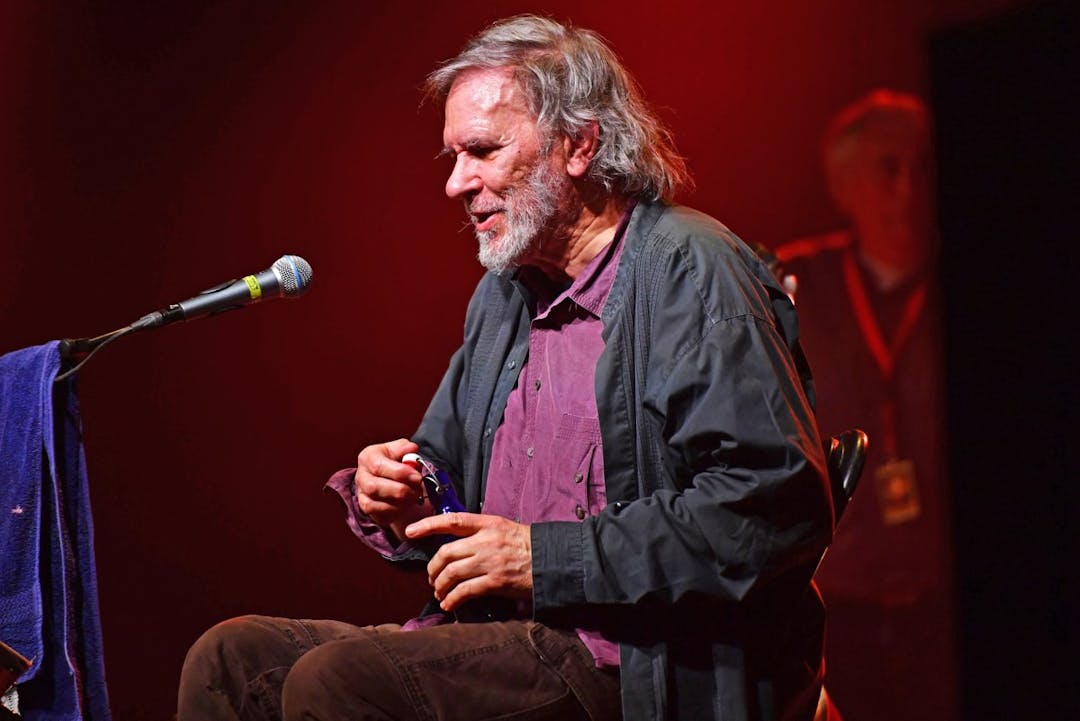
RIP: The legendary Tucker Zimmerman has passed away at the age of 84.
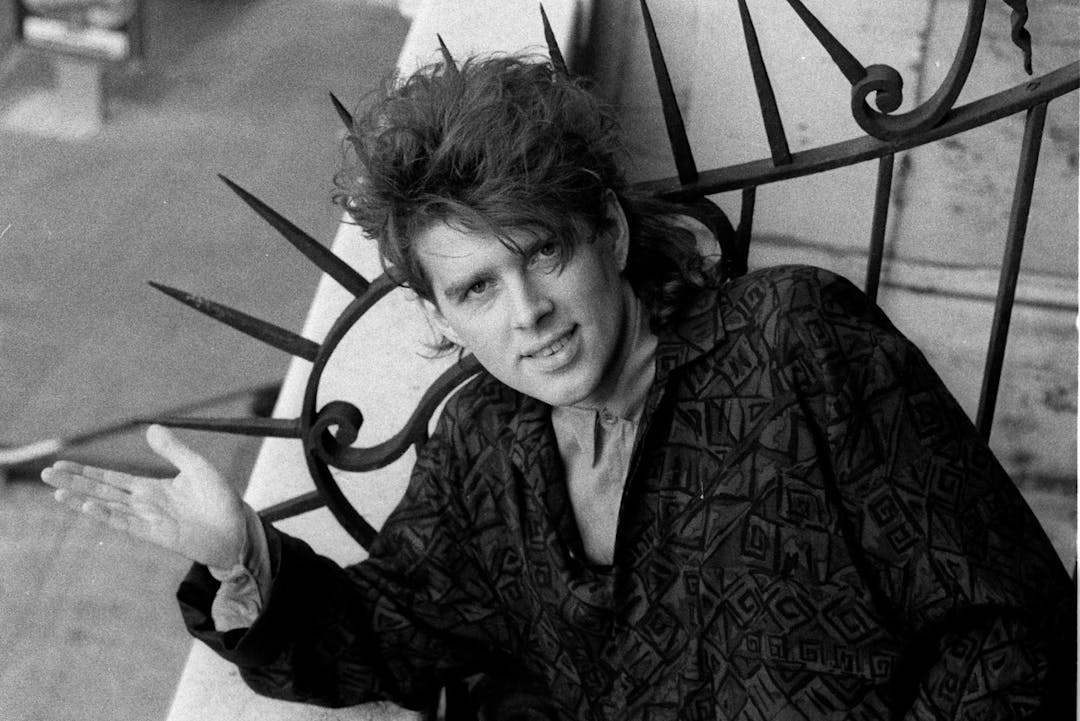
Born on January 18: Tom Bailey (Thompson Twins) always calls his "Doctor! Doctor!"
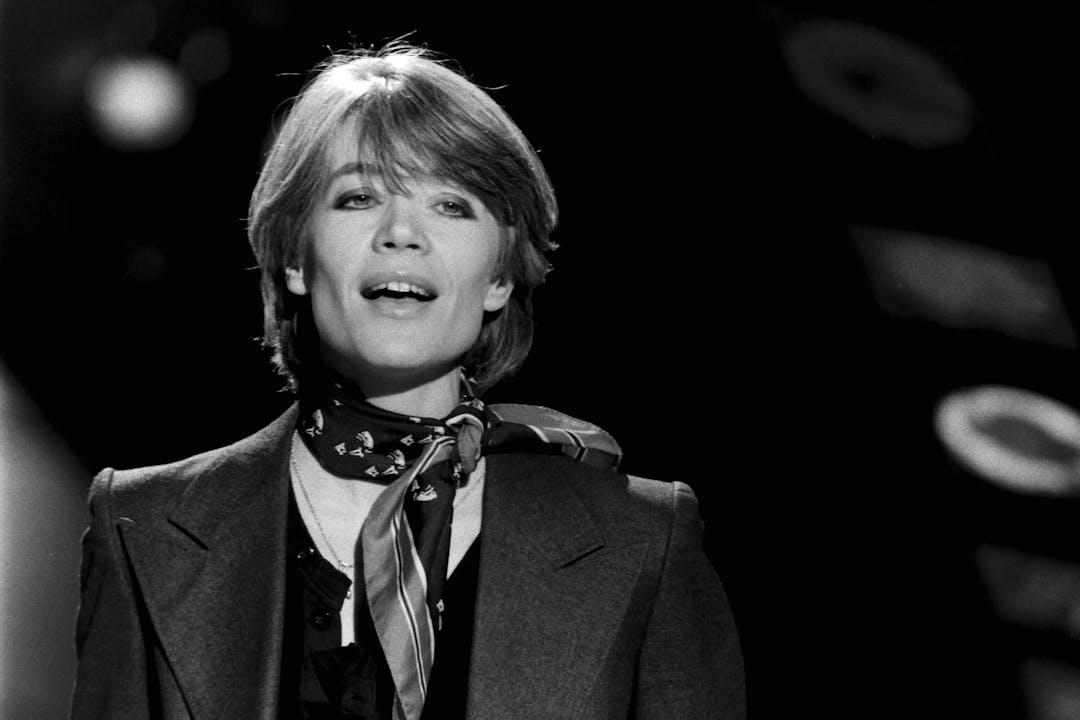
Born on January 17: Françoise Hardy left to find the stars in 2024
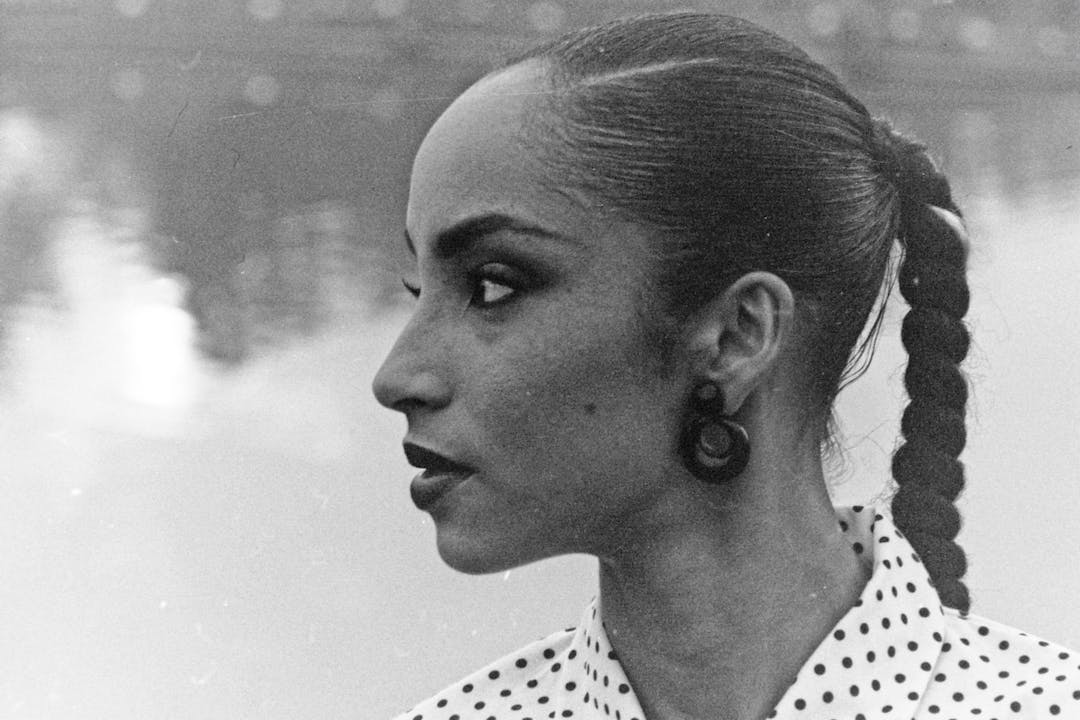
Born on January 16: Sade, the discreet gem of British soul music
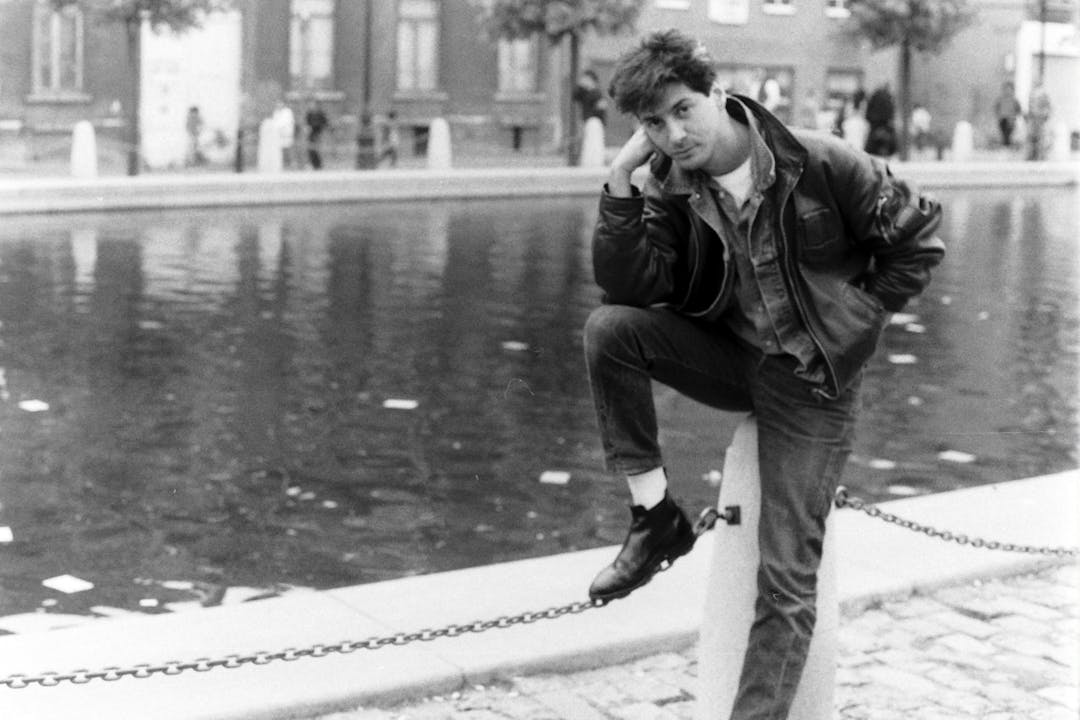
Born on January 14th: Etienne Daho, always full of musical notes...
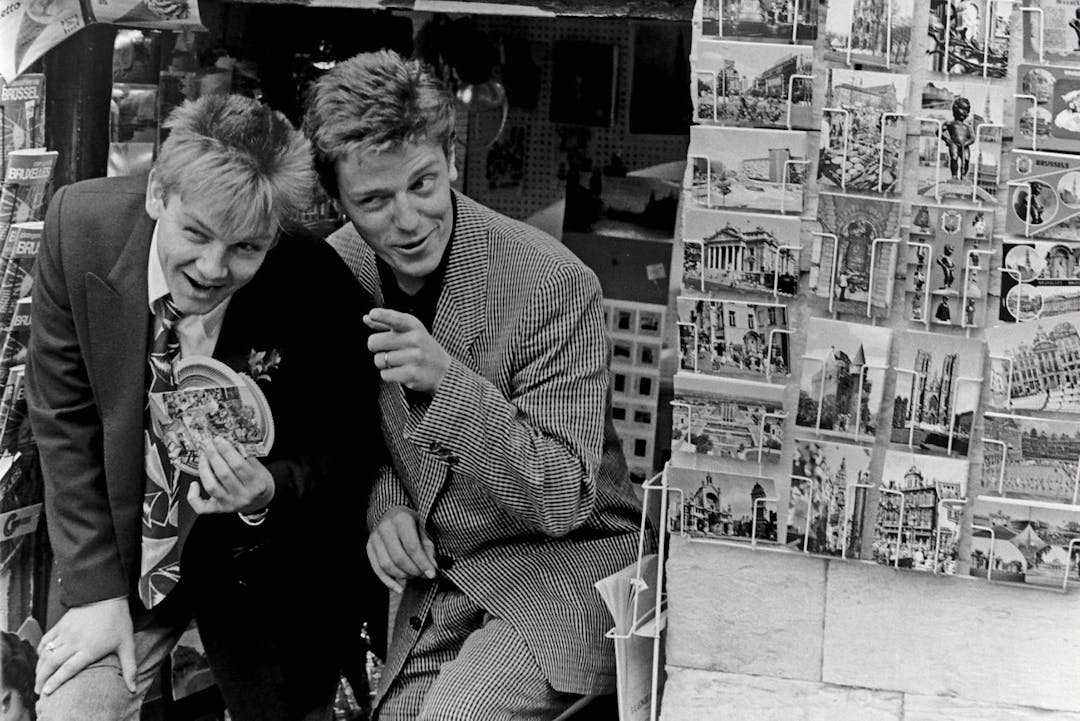
Born on January 13: Suggs (Madness), the sweet English ska madness from the 80s
Quick links